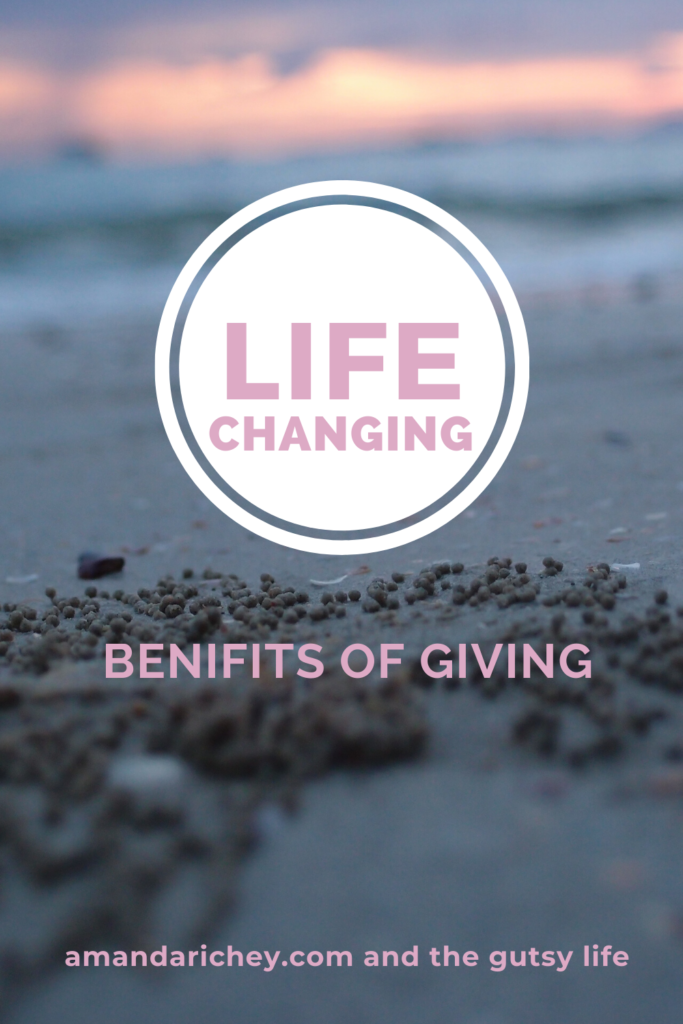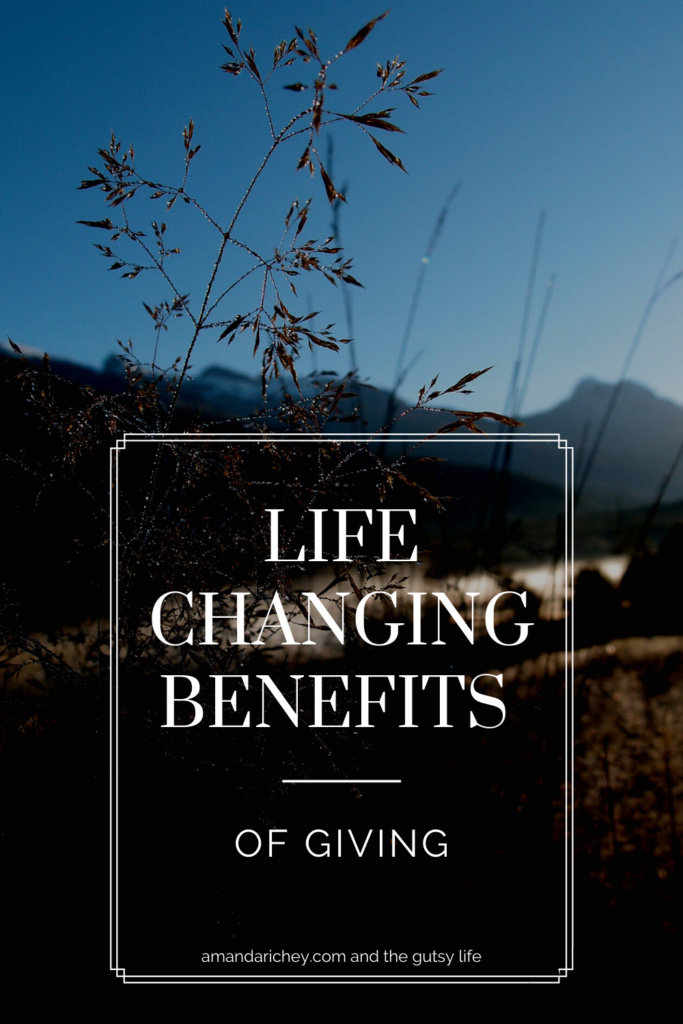How Giving Can Change Your Life
For Leap Day I wanted to look at something special to do or start or explore. I was thinking of a fun thing to do with your extra day of the year and then I remembered the book 29 Gifts: How a Month of Giving Can Change Your Life.
It felt so perfect for February 29. I wish I had thought of it at the beginning of the month and done one gift every day for the 29 days of February. But even if I’m a little late, we can still look at the 29 Gifts and the benefits of giving. No need to wait four more years!
This post contains affiliate links for more read my Disclosures and Policies

The Benefits of Giving
There is quite a lot of evidence out there that indicates that giving can increase your happiness and that happiness leads to a better healthier life. In the book 29 Gifts author, Cami Walker, finds this to be true in her own life. She was diagnosed with MS, and was told by a mentor as part of her healing process to give 29 gifts for 29 days. She was skeptical at first, but once she started the gift giving it changed her life, and the lives of thousands of others.
You know me…I like science! So let’s look at the science behind why this is true.
The Science:
Harvard Business School put out a paper in 2009 exploring the benefits and costs of giving (see references). What they found in analyzing hundreds of studies on happiness and giving was that people who are happy give more, which makes them happy, which makes them give more.
One particular study looked at the brain during the act of giving, in this case to charity, and what they found was surprising. They found that giving created activity in the region of the brain responsible for pleasure and reward: the prefrontal cortex.
This finding was significant because it indicates that giving (altruistic behavior), is linked to our basic pleasure instincts and may serve some biological need. We are a social species and we rely on each other for survival, specifically infants.
It may be that we are hard-wired for altruism; by receiving a pleasure signal when we engage in altruistic acts, we are increasing our communal bonds and increasing our likelihood of survival. This is contrary to the mostly selfish or self-serving view of the survival of the fittest.
Another study looked at the difference between pro-social spending (donating money) and personal spending and found that people who reported greater happiness also participated in more pro-social spending regardless of income. Personal spending did not correlate with increased happiness.
How people spent the money appeared to be more important than how much money they had to spend. Spending on others lead to more self-reported happiness than spending on one’s self.
They also looked at whether this increase in happiness from giving created a positive feedback loop where:
You give, which makes you happy, which results in you giving again, which results in more happiness, which results in more giving.
They found that this was in fact the case.
Another interesting study assigned a group of students the task of preforming five random acts of kindness per week for six weeks (with a control group who did not). The results showed that the students who engaged in random acts of kindness were significantly happier (self-reported) than the controls at the end of the six weeks.
Germany, a similar study found that higher levels of volunteer work were associated with higher levels of self-reported overall life satisfaction. There have also been studies showing that when ‘the wounded healers’ (people who have experienced disease, trauma, or addiction), help others in the same situation, they report more happiness and confidence and are more likely to stay sober.
Real Life Evidence: 29 Gifts
In the book, 29 Gifts, Cami talks about the idea that giving not only increases your overall happiness as the studies indicate, but it also increases your abundance mindset. This is arguably more important than just increasing your mood. When you are in a place of abundance, believing there is more than enough to go around, you are in a place of trust, acceptance, and a deep sense of inner worth and security. An abundance mindset takes a proactive approach to life. A person with an abundance mindset understands that there is more than enough love, time, money, happiness etc. to go around, and rejoices in other people’s accomplishments. They are giving of their love, time, money, happiness, etc. openly and with joy. (For more on an abundance mindset click here.)
This is a place you want to be; not just happier.
She also points out that, by giving, you realize you are a part of something larger than just you. You are connected to the world, to others, and that you have many gifts, not just money or time, that you can offer the world. This is also a big mindset shift because it helps you to realize what you are able to offer. That you have value and can give that value to others. It also helps you to look at others in a new way as well: you see their unique values and gifts. Each one of us is unique and can offer our unique gifts to the world. (For more on our unique strengths click here.)
“When you give with an open heart you receive the profound gift of humility.”
29 Gifts
Giving also makes you more open to receiving from others. Being able to receive gifts, compliments, affection, is something many struggle with, myself included. By opening yourself up to giving you learn humility and you learn to receive.
In the book 29 Gifts, Cami begins to radically change her life and health throughout her 29 days of giving. She journals her experiences each day, not only the gift she gives, but the overall effect it has on her day, her outlook, her health. By the end of the 29 days she has dramatically improved her health, gotten her MS flare up under control, boosted her business, improved her relationship with her husband, and started a movement (29gifts.org) that became a New York Times bestselling book.

Conclusion
No matter how much we have, we are often in a place of scarcity because we never think we have, or are, enough. By focusing on giving you can open yourself up to the understanding that there is enough, you are enough, and you have so much to offer the world.
The evidence is clear: the benefits of giving are many; increased happiness, increased health, increased connections…the list goes on. If you want to change your life a good place to start is by giving.
References
Anik, Lalin, Lara B. Aknin, and Michael I. Norton
2009 Feeling Good about Giving: The Benefits (and Costs) of Self-Interested Charitable Behavior. Harvard Business School Working Paper
Elizabeth W. Dunn https://www.hbs.edu/faculty/Publication%20Files/10-012_0350a55d-585b-419d-89e7-91833a612fb5.pdf


